Each year, U of T’s Centre for Criminology and Sociolegal Studies hosts the John LL. J. Edwards Memorial Lecture in honour of the Centre’s founder. This year’s Lecture featured eminent American sociologist and lawyer Professor Dorothy Roberts. Professor Roberts is a social justice advocate focused on the racialized dimensions and structure of child protection agencies, the dispossession of families, and family separation. In her lecture, she reflected on the findings in her book, Torn Apart: How the Child Welfare System Destroys Black Families—and How Abolition Can Build A Safer World.
The Lecture
Professor Roberts traced the roots of the current U.S. foster care system to histories of slavery and discussed how the unjust structure of the child welfare system, or “family policing,” devastatingly injures families. She also examined the racist origins of family policing and other forms of social and biopolitical control such as mass incarceration and criminal investigations. Her lecture highlighted that the principle of taking children away from their parents and relocating them is consistent with practices such as Black child apprenticeships and residential schools, which were predicated on racist assumptions about the capabilities of Black or Indigenous parents.
Professor Roberts also discussed the racial disparities in child protection law enforcement. For example, some doctors were more likely to suspect child abuse when Black parents brought a child to the ER for an injury. Likewise, child protection services are more likely to investigate the homes of Black families.
The intersection of race and class can lead to particularly damaging impacts. For instance, drug tests are more commonly administered in impoverished communities, giving child protection agencies more grounds to conduct investigations. Rather than focusing resources on helping vulnerable parents—such as those experiencing substance abuse disorder—recover financially and medically, Professor Roberts found that jurisdictions in the United States have overwhelmingly invested resources into child protection investigations focused on monitoring and punishing low-income families of colour. A particularly concerning reality, as highlighted by Professor Roberts, is that 53 percent of Black children in the United States will experience a child protection investigation in their lifetime. Furthermore, Black children are four times more likely to be removed from their homes and placed into foster care than non-Black children. This disparity begs the question—abolition or reform of family policing?
Abolition or Reform?
Professor Roberts’ lecture was based on an experienced perspective in both the theory and practice at the intersections between family law and criminal justice. Among many of her notable accomplishments and experiences, she spent nine years serving on an expert task force to fix the problems of foster care in the state of Washington in response to a class action lawsuit by foster care children. While some improvements were made, such as increased training of foster parents, she concluded that many problems still exist. It is rare for a wealthy family to be involved in this system; more often than not, child protection enforcement disproportionately impacts impoverished and racialized areas.
Professor Roberts noted that the roots and trajectory of family policing, the way that the foster system has led to increased monitoring and criminalization of families of colour, and the violence inherent to its enforcement all call in favour of the overall abolition of the family policing structure. Fixing the system, as argued by Professor Roberts, only strengthens and legitimizes it.
What Law Students and Lawyers Can Do
For those thinking about a career in family law or criminal law, this sobering reality—and the verdict of abolition—may carry a sense of hopelessness. However, many members of the Faculty teach in buildings on both sides of Hoskin Avenue, and the opportunities for interdisciplinary collaboration in course selections, socials, research talks, and public lectures are endless. This bifurcated approach to the law provides both attention to the intricacies of the administrative, family, and criminal law apparatuses cultivated through the law school, and the open-minded, barrier-bashing creativity and skill of research methodology cultivated through academia.
As Professor Roberts noted, this approach is essential in representing clients whose children have been arbitrarily taken away from their care, their custody, and their home. In response to a question by Professor Brenda Cossman, Professor Roberts stated that lawyers can serve such clients best by being well-versed in a multitude of disciplines. This representation begins with attention to the racialized dynamics and permanently damaging consequences to families due to family policing. However, it also requires an interdisciplinary competence to get families their required services from grassroots organizations that can forestall child removal. For example, a parent whose children have been taken away because of their history of substance abuse would benefit significantly from a lawyer who can actively research culturally appropriate and realistic recovery programs, as well as organizations that fund their recovery and address factors that reduce the risk of relapse.
Events such as the Edwards Lecture are strong reminders of our obligation to our future clients, and the collaboration between law students and academics is an ongoing necessity to ensure that access to justice is more than just an idea.
This article by Nik Khakhar is re-posted from Ultra Vires (Vol. 24, Iss. 4, January 26, 2023). Ultra Vires is the independent student newspaper of the University of Toronto Faculty of Law.


